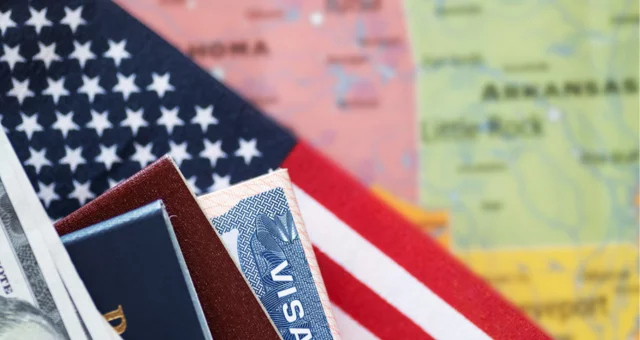New guidance clarifies evidence for Extraordinary Ability green card eligibility
On October 2, the U.S. Citizenship and Immigration Services released new guidance aimed at clarifying the types of evidence that may be submitted to establish eligibility for the Extraordinary Ability (EB-1A) immigrant visa classification.
The EB-1A immigrant visa applies to individuals with extraordinary ability in the sciences, arts, education, business, or athletics, who can demonstrate sustained national and international acclaim through recognized achievements and extensive documentation.
The new policy guidance expands on the types of evidence that the USCIS will consider when determining eligibility for the EB-1A immigrant visa, but it also places some limits on the evidence that will qualify.
Key updates
- An individual’s receipt of team awards will now be considered under the criterion for “lesser nationally or internationally recognized prizes or awards for excellence in the field of endeavor.”
- Past memberships under the “membership” criterion will be considered.
- The removes language suggesting that published material must demonstrate the value of the individual’s work and contributions to satisfy the “published material” criterion.
- Previously, “exhibitions” as evidence of extraordinary ability were limited to artistic displays. The new guidance broadens the evidentiary criteria by now allowing “non-artistic” exhibitions or showcases (by individuals who are not within the artistic field) to be considered as comparable evidence of extraordinary ability.
The new policy guidance is effective immediately and builds on previous guidance from September 12, 2023, which provided examples of qualifying evidence for the EB-1A immigrant visa.
Two-step analysis
The USCIS uses a two-step analysis to determine whether an individual has provided enough evidence to qualify for the “extraordinary ability” visa.
Step One: Does the evidence meet the USCIS criteria? The USCIS first evaluates whether the evidence presented meets the criteria. To qualify, an individual must either present evidence of a one-time achievement (a major internationally recognized award), or at least three of the following (or comparable evidence):
- Receipt of lesser nationally or internationally recognized prizes or awards for excellence.
- Membership in associations in the field that demand outstanding achievement of their members.
- Published material about the individual in professional or major trade publications, or other major media.
- Evidence that the individual has been asked to judge the work of others, either individually or on a panel.
- Original scientific, scholarly, artistic, athletic, or business-related contributions of major significance to the field.
- Authorship of scholarly articles in professional or major trade publications, or other major media.
- Evidence that the individual’s work has been displayed at artistic exhibitions or showcases.
- Evidence of the individual’s performance of a leading or critical role in distinguished organizations.
- Evidence that the individual commands a high salary or other significantly high remuneration in relation to others in the field.
- Evidence of commercial successes in the performing arts.
Step Two: Does the individual qualify? Once an individual has met the criteria above, the USCIS then makes a final merits determination. The determination is based on whether the totality of the evidence demonstrates that the individual’s achievements have been recognized in their field, and whether they are among the small percentage who have risen to the very top of the relevant field with sustained national or international acclaim.
Although the new policy guidance expands on the definition of “award” to include team achievements, the individual must have been specifically named as a recipient of the team award. The focus is on the person’s receipt of the award, not on the employer or organization.
Publications will no longer need demonstrate the value of an individual’s work to qualify. However, in making its final merits assessment, the USCIS will still assess whether the individual’s achievements are recognized in the relevant field. Demonstrating the value of the work is essential in proving recognition in the field of expertise.
In summary, although the new guidance introduces more flexibility with some of the evidence, the USCIS still emphasizes the importance of an individual’s recognition in awards and the value of the individual’s work.






